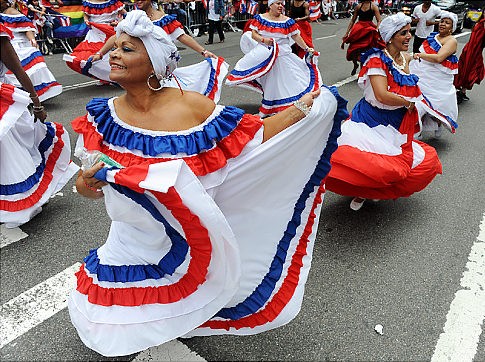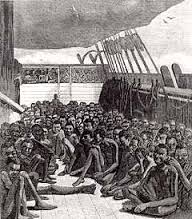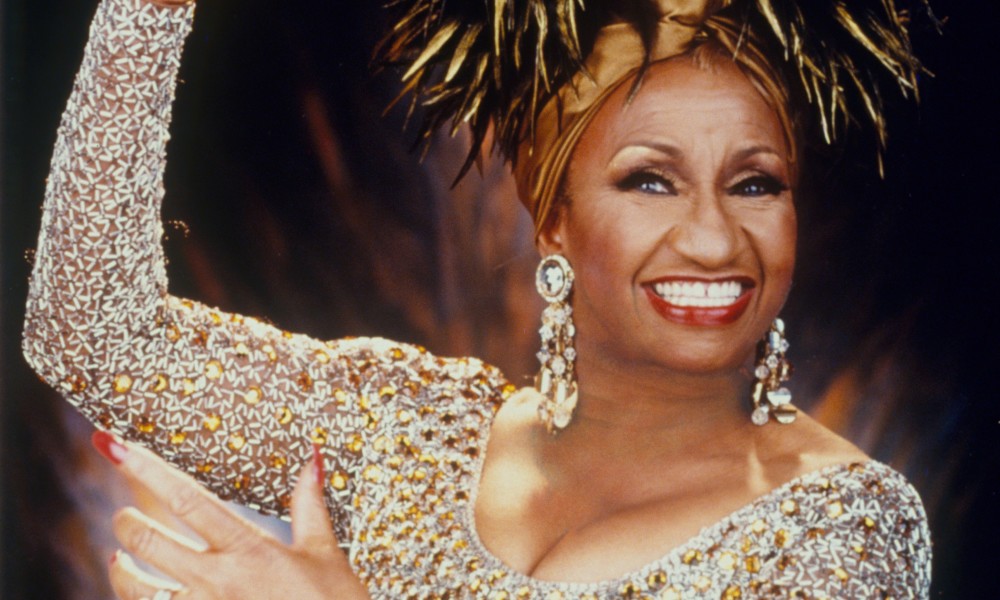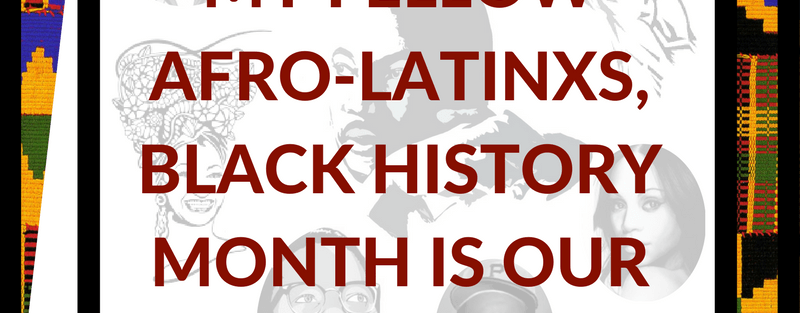 We typically associate Black History Month with African-Americans. Since this is commonly the case, what does Black History have to do with the Latinx community? There is a tendency to view “black” and “Latinx” as separate entities, as if they have nothing to do with each other. However, there are significant populations of Latinxs throughout the countries of Latin America who are of African descent. These African- descended Latinxs are commonly referred to or self-identify, primarily in the U.S., as “Afro-Latinxs”. With that said, what do African-Americans and Afro-Latinxs have in common? We are black! Yet there is not nearly enough mention of the Afro-Latinx experience in the U.S. during this commemorative month. Looking back into our history, African-Americans and Afro-Latinxs share a common lineage. The conversation about the
We typically associate Black History Month with African-Americans. Since this is commonly the case, what does Black History have to do with the Latinx community? There is a tendency to view “black” and “Latinx” as separate entities, as if they have nothing to do with each other. However, there are significant populations of Latinxs throughout the countries of Latin America who are of African descent. These African- descended Latinxs are commonly referred to or self-identify, primarily in the U.S., as “Afro-Latinxs”. With that said, what do African-Americans and Afro-Latinxs have in common? We are black! Yet there is not nearly enough mention of the Afro-Latinx experience in the U.S. during this commemorative month. Looking back into our history, African-Americans and Afro-Latinxs share a common lineage. The conversation about the

history of the transatlantic slave trade and the experience of enslaved people is typically focused on those who came to the U.S.,especially in the South. However, only approximately 400,000 out of the 10.7 million of the enslaved Africans who survived the Middle Passage came to the U.S. over the course of the transatlantic slave trade. Thus, the majority of the Africans who survived the voyage to the Americas arrived in the Caribbean and Latin America.
The Africans who arrived in the U.S. and Latin America left a significant impact on the African-American, Afro-Latinx, and broader communities. Their descendants continue to preserve, shape, and maintain the influence left behind by their ancestors. From the music to the food, from literature and the arts to religion, there is a notable African presence that exists in both cultures. Now, what does this all mean?
“Essentially, what differs us from each other is where our African ancestors landed during the transatlantic slave trade.”
So, why should Latinxs be included in the celebration of Black History Month? Firstly, we should honor the achievements and sacrifices of the African-American community and acknowledge the horrors they endured to fight for the rights that not only African- Americans have the freedom to exercise today, but rights that continue to benefit all groups, including the Latinx community.
sacrifices of the African-American community and acknowledge the horrors they endured to fight for the rights that not only African- Americans have the freedom to exercise today, but rights that continue to benefit all groups, including the Latinx community.
Secondly, Black History Month should be a celebration of all African descendants and the contributions they have made to the U.S.; there are also notable Afro-Latinx figures that made their mark in American history who deserve recognition as well. Arturo Alfonso Schomburg, a Puerto Rican of African and German descent, was a historian, writer, and activist during the Harlem Renaissance who raised awareness pertinent to the contributions African-Americans and Afro-Latinxs made in society.
Schomburg’s collection of African artifacts, art, literature, and narratives of enslaved people became the basis for the  construction of the Schomburg Center for Research in Black Culture, housed in the New York Public library. Roberto Clemente, who was a Puerto Rican of African descent, became the first Latino player inducted into the Hall of Fame. Afro-Dominican Junot Diaz, writer and professor at Massachusetts Institute of Technology (MIT), is a Pulitzer Prize-winning author and MacArthur Fellow. Celia Cruz, who was Afro-Cuban, is recognized as the one of the most popular and renowned Latin artists of all time. She is known internationally as “The Queen of Salsa.”
construction of the Schomburg Center for Research in Black Culture, housed in the New York Public library. Roberto Clemente, who was a Puerto Rican of African descent, became the first Latino player inducted into the Hall of Fame. Afro-Dominican Junot Diaz, writer and professor at Massachusetts Institute of Technology (MIT), is a Pulitzer Prize-winning author and MacArthur Fellow. Celia Cruz, who was Afro-Cuban, is recognized as the one of the most popular and renowned Latin artists of all time. She is known internationally as “The Queen of Salsa.”
These influences are a few of the many examples of Afro-Latinxs making history in the United States of America. Let us proudly celebrate Black History Month. Let us celebrate our African roots. We need to stop differentiating ourselves from the African-American community, because we are all part of the black community. It does not matter if we speak a different language. That just shows how truly diverse we—the people of the African Diaspora— are. As we move forward, let us work on sharing our narrative as Afro-Latinxs during this month, because Black History Month is OUR month too; because black history is also OUR history. And we deserve a seat at the table.
http://autocww.colorado.edu/~toldy3/E64ContentFiles/HistoryOfTheAmericas/BlacksInLatinAmerica.html
http://www.npr.org/2011/07/27/138601410/what-it-means-to-be-black-in-latin-america
http://www.theroot.com/how-many-slaves-landed-in-the-us-1790873989


